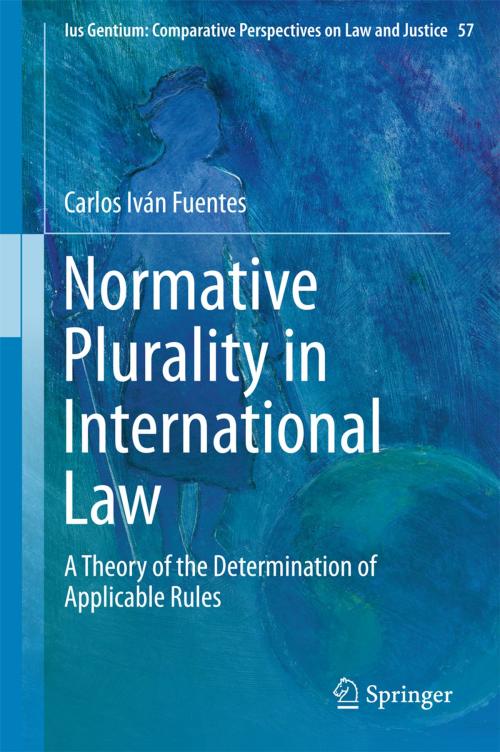Normative Plurality in International Law
A Theory of the Determination of Applicable Rules
Nonfiction, Reference & Language, Law, Public, International| Author: | Carlos Iván Fuentes | ISBN: | 9783319439297 |
| Publisher: | Springer International Publishing | Publication: | September 2, 2016 |
| Imprint: | Springer | Language: | English |
| Author: | Carlos Iván Fuentes |
| ISBN: | 9783319439297 |
| Publisher: | Springer International Publishing |
| Publication: | September 2, 2016 |
| Imprint: | Springer |
| Language: | English |
This book provides a theoretical framework for explaining the choices made by international decision-makers in terms of what constitutes law. It comprehensively analyzes the practice of human rights courts in applying legal instruments outside their competence and proposes that this practice recognizes that different normative instruments coexist in an un-ordered space, and that meaning can be produced by the free interaction of those instruments around a problem. Based on this, the book advances its normative plurality hypothesis, which states that decision-makers must survey the acquis of international law in order to identify all the instruments containing relevant normative information for a particular situation. The set of rules of law applicable to the situation must then be complemented with other instruments containing specific normative information relevant to the situation, resulting in a complete system of norms advancing a common purpose.
This book provides a theoretical framework for explaining the choices made by international decision-makers in terms of what constitutes law. It comprehensively analyzes the practice of human rights courts in applying legal instruments outside their competence and proposes that this practice recognizes that different normative instruments coexist in an un-ordered space, and that meaning can be produced by the free interaction of those instruments around a problem. Based on this, the book advances its normative plurality hypothesis, which states that decision-makers must survey the acquis of international law in order to identify all the instruments containing relevant normative information for a particular situation. The set of rules of law applicable to the situation must then be complemented with other instruments containing specific normative information relevant to the situation, resulting in a complete system of norms advancing a common purpose.















